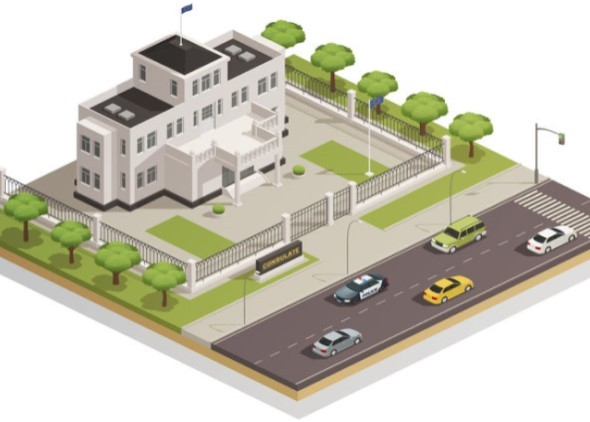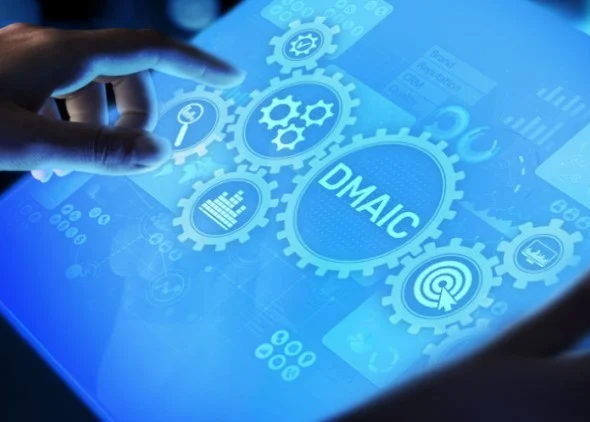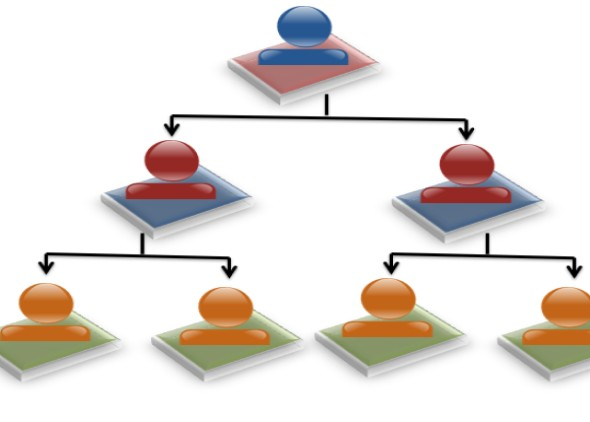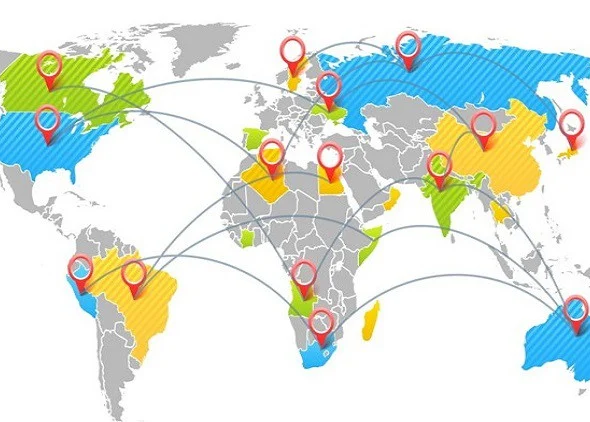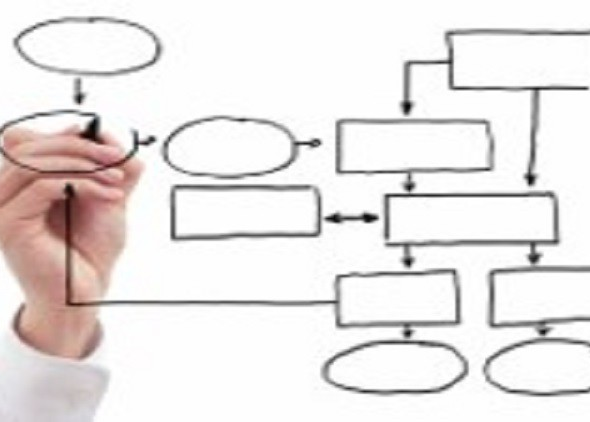
Upskill and Transform Your Career!
Technology and the world of work change fast — with us, you’re faster. Get the skills to achieve goals and stay competitive.



Happy Students

Reviews

MORE THAN 1,300 CUSTOMERS TRUST MANAGEMENT STUDY GUIDE






Top Categories
Learn management skills fast with easy, illustrated courses in leadership, marketing, and more to advance your career.
Learn management concepts and skills rapidly
Management Study Guide was founded in 2008 by Himanshu Juneja, who recognized a significant gap in the availability of management-related information online. At that time, while pursuing her MBA, the co-founder struggled to find comprehensive resources on management topics.
Recently the Founder and CEO has been Awarded “Most Aspiring Entrepreneur and Management Coach of 2025 (Blindwink Awards 2025)” award, a testament to his hard work, vision, and the value MSG continues to deliver to the global community.
Learn & Grow Your Skills From Anywhere
A Smarter Way to Study....
short presentations, real results
- Optimum lively Graphics and Animation to make the concept easy to understand
- Engaging PPTs which are a fast, effective, short and concise, with lots of examples to help you master the subject quickly
- Continuous learning platform - new presentations added every week
Pick A Course To Get Started
- Operations
- Management Basic
- People Management
- Marketing
- Organization
- Finance
Retail Supply Chain Management
A strong and efficient ‘Retail Supply Chain Management’ and ‘Logistics System’ provides a firm foundation and backbone for success in...
- 17 Lessons
- 1 Students
Maintenance Management
‘Maintenance’ is defined as a process in which working condition of plant or machinery is maintained at the optimum level...
- 17 Lessons
- 2 Students
RACI Matrix
The RACI Matrix is also known as the Responsibility Assignment Matrix (RAM). ‘RACI’ is pronounced as ‘Racy’ or ‘Raki’. RACI...
- 17 Lessons
- 1 Students
Managing a Sales Team with Success
Communicating with other people is really simple. We all have communicated countless thoughts, ideas, moments of happiness and occasional anger...
- 14 Lessons
- 7 Students
Analyze Your Business
A very useful course for Start-ups, Entrepreneurs and others because this course comes with bundle of other concepts like Leadership, Decision-making, Finance,...
- 12 Lessons
- 3 Students
Public Administration
An interesting course for students and working professionals who wanted to know what is public administration and know the difference...
- 11 Lessons
- 0 Students
Services Marketing Communication
It is necessary for establishing and maintaining a service brand through a holistic marketing communication approach. Helps to align service...
- 17 Lessons
- 0 Students
Sales Promotion Management
Sales Promotion activities are meant to communicate and persuade the target market to buy the company’s products. Hence, sales promotion...
- 12 Lessons
- 1 Students
Network Security
A course which offers you network security against all kinds of threats - Malware, Spyware, Wi-Fi attacks etc.After learning this...
- 13 Lessons
- 0 Students
Strategic Game Theory for Managers
You can some useful and simple Concepts and Strategies from Game Theory. Become a master in resolving issues using these...
- 17 Lessons
- 2 Students
Project Procurement Management
A unique course designed especially for procurement managers and project managers. This course teaches the readers that if the procurement...
- 8 Lessons
- 3 Students
Six Sigma
The course starts with few interesting facts based on History of Six Sigma. After reading this course, one can know...
- 17 Lessons
- 4 Students
Succession Planning
The main objective of Succession Planning is to understand the long term goals and objectives of the organization, identify and...
- 14 Lessons
- 0 Students
Market Segmentation
DO YOU WANT TO KNOW HOW THE CUSTOMERS SEGMENT THEMSELVES AND FOCUS ON THE PRODUCTS BASED ON THE NEEDS OF...
- 14 Lessons
- 2 Students
Supervisory Skills
Recently promoted to that coveted supervisory role you have wanted for years? Joined a new company and want to make...
- 12 Lessons
- 2 Students
Management by Objectives
An effective management goes a long way in extracting the best out of employees and make them work as a...
- 17 Lessons
- 1 Students
Performance Management
Performance Management means systematically managing all the people in an organization, for innovation, goal focus, productivity and satisfaction. Hence, Performance...
- 14 Lessons
- 4 Students
Knowing Your Employees
Any individual who strives hard to accomplish goals and objectives of a particular organization is called as an ‘employee’. Employees...
- 17 Lessons
- 3 Students
Research Analyst
Mastering the fundamentals of research and diving deep into the complex world of company analysis will set you free to...
- 12 Lessons
- 3 Students
Strategic Game Theory for Managers
You can some useful and simple Concepts and Strategies from Game Theory. Become a master in resolving issues using these...
- 17 Lessons
- 2 Students
Project Procurement Management
A unique course designed especially for procurement managers and project managers. This course teaches the readers that if the procurement...
- 8 Lessons
- 3 Students
Theory X and Y of Motivation
Is your manager or boss authoritative in character and micromanages all your work? OR Is your manager co-operative, helpful and...
- 17 Lessons
- 4 Students
Six Sigma
The course starts with few interesting facts based on History of Six Sigma. After reading this course, one can know...
- 17 Lessons
- 4 Students
Levels of Management
Are you working in any organization where nobody knows about their responsibilities, what task they need to perform and what...
- 17 Lessons
- 1 Students
Succession Planning
The main objective of Succession Planning is to understand the long term goals and objectives of the organization, identify and...
- 14 Lessons
- 0 Students
Market Segmentation
DO YOU WANT TO KNOW HOW THE CUSTOMERS SEGMENT THEMSELVES AND FOCUS ON THE PRODUCTS BASED ON THE NEEDS OF...
- 14 Lessons
- 2 Students
Recruitment Skills
Are you tired of struggling with hiring and worrying about interviews? Do you want to recruit the best talent and...
- 17 Lessons
- 2 Students
Supervisory Skills
Recently promoted to that coveted supervisory role you have wanted for years? Joined a new company and want to make...
- 12 Lessons
- 2 Students
Manpower Planning
Manpower Planning is also known as Workforce Planning. Manpower Planning is the process of personnel planning; formulating plans to fill...
- 11 Lessons
- 3 Students
Supply chain management
Supply chain management is all about making sure that everyone has exactly what they need to do their job. In...
- 16 Lessons
- 1 Students
Positive Psychology
The primary aim of ‘Positive Psychology’ is to avoid therapy and serve as a means of achieving the old adage...
- 16 Lessons
- 5 Students
NLP Core Skills
A fantastic course for those willing to learn the thinking process, behavior and language patterns which helps us to build...
- 18 Lessons
- 2 Students
NGO Management
The decades starting with the 1990s witnessed the proliferation of a new kind of sector among the various agencies and...
- 11 Lessons
- 0 Students
Managing a Sales Team with Success
Communicating with other people is really simple. We all have communicated countless thoughts, ideas, moments of happiness and occasional anger...
- 14 Lessons
- 7 Students
Neuroscience for Leaders & Managers
The knowledge and understanding of Neuroscience help understand neutron activation patterns which is crucial to help Managers and Leaders to...
- 16 Lessons
- 4 Students
Performance Management
Performance Management means systematically managing all the people in an organization, for innovation, goal focus, productivity and satisfaction. Hence, Performance...
- 14 Lessons
- 4 Students
Knowing Your Employees
Any individual who strives hard to accomplish goals and objectives of a particular organization is called as an ‘employee’. Employees...
- 17 Lessons
- 3 Students
Reinforcement Theory of Motivation
Those curious to learn about human behaviour under various circumstances. You might have observed that individual's behaviour with positive consequences...
- 17 Lessons
- 2 Students
Social Psychology
ARE YOU EAGER IN LEARNING HOW PEOPLE INFLUENCE EACH OTHER'S THOUGHTS, FEELINGS AND BEHAVIOUR? DO YOU KNOW THAT YOUR DECISION...
- 17 Lessons
- 0 Students
Stress Management
Learning how to handle and defuse stress is all about understanding why it occurs in the first place. Once you...
- 14 Lessons
- 1 Students
Principles of Psychology
This course is very useful for those willing to understand the human behavior. It has been observed that one of...
- 17 Lessons
- 0 Students
Theory X and Y of Motivation
Is your manager or boss authoritative in character and micromanages all your work? OR Is your manager co-operative, helpful and...
- 17 Lessons
- 4 Students
Proactive Thinking
Proactive Thinking includes estimating a future circumstance and making an arrangement of activity as opposed to sitting tight for occasions...
- 12 Lessons
- 2 Students
Situational Leadership
Situational Leadership – 15+ Video to teach you become an Effective Leader!!!!Are you a leader struggling to adjust your leadership...
- 17 Lessons
- 4 Students
Pareto Analysis
Are you confused in utilizing your resources and find it difficult to manage your work? Then this course is for...
- 17 Lessons
- 1 Students
Managing a Sales Team with Success
Communicating with other people is really simple. We all have communicated countless thoughts, ideas, moments of happiness and occasional anger...
- 14 Lessons
- 7 Students
Personal Branding & Image Building
Are you interested in getting your target audience? Do you wanted to build your personal and image brand and fly...
- 17 Lessons
- 2 Students
Marketing Skills
Welcome to the Complete Marketing Skills Course.Master the art of Marketing, Building Strategy, B2B Skills, Lead Generation etc.Nobody is born...
- 16 Lessons
- 0 Students
Services Marketing Communication
It is necessary for establishing and maintaining a service brand through a holistic marketing communication approach. Helps to align service...
- 17 Lessons
- 0 Students
Sales Promotion Management
Sales Promotion activities are meant to communicate and persuade the target market to buy the company’s products. Hence, sales promotion...
- 12 Lessons
- 1 Students
Market Segmentation
DO YOU WANT TO KNOW HOW THE CUSTOMERS SEGMENT THEMSELVES AND FOCUS ON THE PRODUCTS BASED ON THE NEEDS OF...
- 14 Lessons
- 2 Students
Marketing Mix
The marketing mix is a proven growth strategy for any smart entrepreneur, business owner, or professional who aspires to do...
- 12 Lessons
- 0 Students
Basics of Service Markets, Consumers and Products
- 17 Lessons
- 0 Students
Basics of Service Markets, Consumers and Products
BASICS OF SERVICE MARKETS, CONSUMERS AND PRODUCTS – LEARN WHAT DRIVES CONSUMER BEHAVIOR.Are you an Entrepreneur/Student/Working Professional craving to learn...
- 17 Lessons
- 0 Students
Negotiation Skills
NEGOTIATION SKILLS – MASTER YOUR NEGOTIATION SKILLSJUST CHECK OUT OUR LATEST MODULE ON NEGOTIATION SKILLS AND MASTER YOUR NEGOTIATION SKILLS...
- 17 Lessons
- 3 Students
Sales Skills and Techniques
In every job or every walk of life, you will definitely come across some sorts of "sales moments". Selling yourself...
- 12 Lessons
- 4 Students
Services Pricing & Revenue Management
Service price is the amount of money or goods for which a service can be bought or sold. Hence, it...
- 17 Lessons
- 4 Students
Telesales Skills
Customers want value, quality, fast delivery, and a dozen other things right now; you’re the one who needs to be...
- 12 Lessons
- 1 Students
Business 2 Business Marketing
- 10 Lessons
- 2 Students
Advertisement Management
Advertising has long been used since the olden days. However, it was not the same form of advertising as seen...
- 2 Lessons
- 7 Students
Digital Marketing
If you want your organization to stay abreast of times and radically change the way they market themselves - this...
- 17 Lessons
- 1 Students
Positive Psychology
The primary aim of ‘Positive Psychology’ is to avoid therapy and serve as a means of achieving the old adage...
- 16 Lessons
- 5 Students
NLP Core Skills
A fantastic course for those willing to learn the thinking process, behavior and language patterns which helps us to build...
- 18 Lessons
- 2 Students
Reinforcement Theory of Motivation
Those curious to learn about human behaviour under various circumstances. You might have observed that individual's behaviour with positive consequences...
- 17 Lessons
- 2 Students
Social Psychology
ARE YOU EAGER IN LEARNING HOW PEOPLE INFLUENCE EACH OTHER'S THOUGHTS, FEELINGS AND BEHAVIOUR? DO YOU KNOW THAT YOUR DECISION...
- 17 Lessons
- 0 Students
Principles of Psychology
This course is very useful for those willing to understand the human behavior. It has been observed that one of...
- 17 Lessons
- 0 Students
Theory X and Y of Motivation
Is your manager or boss authoritative in character and micromanages all your work? OR Is your manager co-operative, helpful and...
- 17 Lessons
- 4 Students
Proactive Thinking
Proactive Thinking includes estimating a future circumstance and making an arrangement of activity as opposed to sitting tight for occasions...
- 12 Lessons
- 2 Students
Johari Window
‘Johari Window’ is an effective technique which when used appropriately provides valuable information regarding one’s own self and others, which...
- 10 Lessons
- 4 Students
Diversity Management
The world of work demands managers take a far more proactive approach in recognizing differences and coming up with ways...
- 17 Lessons
- 4 Students
Ethical Leadership
Are you interested in learning the importance of being Ethical when your organization grows up to the next level? Do...
- 17 Lessons
- 3 Students
Strategic Management
A manager who is overly focused on daily administration or everyday operational decisions will never achieve their full potential. Being...
- 17 Lessons
- 4 Students
Emotional Intelligence
ARE YOU EAGER TO LEARN HOW EMOTIONAL INTELLIGENCE CONTRIBUTES TO BETTER PERFORMANCE IN ALL AREAS? DO YOU WANT TO UNDERSTAND...
- 17 Lessons
- 5 Students
Building Self Confidence
When you refer to any dictionary, there are at least 3 definitions for “confidence”.Keeping certain information secret or restricted to...
- 1 Lessons
- 11 Students
Corporate Etiquette
‘Corporate Etiquette’ is crucial for conducting oneself in the right and professional manner in a business environment.
- 17 Lessons
- 2 Students
Introduction to Counselling & Psychotheraphy
DO YOU FACE PROBLEMS IN BOTH YOUR PERSONAL AND PROFESSIONAL LIFE AND NEED SOMEONE TO SOLVE IT? ARE YOU INTERESTED...
- 0 Lessons
- 0 Students
Managerial Economics
This is an interesting course for business people especially the retailers who must understand the concept of demand and supply...
- 17 Lessons
- 1 Students
Analyze Your Business
A very useful course for Start-ups, Entrepreneurs and others because this course comes with bundle of other concepts like Leadership, Decision-making, Finance,...
- 12 Lessons
- 3 Students
Research Analyst
Mastering the fundamentals of research and diving deep into the complex world of company analysis will set you free to...
- 12 Lessons
- 3 Students
International Trade
World Trade Organization (WTO) was formed in 1995. It is the only global international organization dealing with the rule of...
- 1 Lessons
- 8 Students
Financial Management
Are you struggling to manage the finance in your organization? Are you willing to unlock the financial potential in you?...
- 17 Lessons
- 2 Students
Introduction to Stocks and Investing
ARE YOU WORKING IN AN ORGANIZATION AND LOOKING FOR A GOOD INVESTMENT AVENUE WHICH CAN MULTIPLE YOUR WEALTH? ARE YOU...
- 17 Lessons
- 2 Students
Services Pricing & Revenue Management
Service price is the amount of money or goods for which a service can be bought or sold. Hence, it...
- 17 Lessons
- 4 Students
How to Read a Balance Sheet
By the term “Balance,” the first thought that comes to our mind is equal proportion. Centuries back, the idea was...
- 1 Lessons
- 16 Students
Basics of Monetary Economics
VERY USEFUL COURSE FOR THOSE WHO ARE PURSING ECONOMICS AND THOSE WILLING TO DEVELOP THEIR KNOWLEDGE IN ECONOMICS.Monetary economics refers...
- 10 Lessons
- 3 Students
Compensation Management
Compensation should be viewed as the strategic management of wages and salaries. Compensation management strives for internal and external equity....
- 12 Lessons
- 1 Students
Introduction to Auditing
Auditing is the process of assessment and ascertaining of financial, operational, and strategic goals and processes in organizations. Audit helps...
- 12 Lessons
- 2 Students
Introduction to Cryptocurrency & Bitcoin
ARE YOU INTERESTED IN GAINING GOOD KNOWLEDGE ABOUT BITCOIN AND CRYPTOCURRENCY - THEN THIS COURSE IS FOR YOU. DON'T JUST...
- 12 Lessons
- 2 Students
Basics of Banking
Gerald Klein of University of London explains “bank” as “a body, corporate or not, that has been recognized by Bank...
- 13 Lessons
- 4 Students


Course Enrolments
Onlien Courses
SATISFACTION RATE
ACTIVE STUDENTS


Start Learning With Free Courses
Positive Psychology
The primary aim of ‘Positive Psychology’ is to avoid therapy and serve as a means of achieving the old adage...
- 16 Lessons
- 5 Students
NLP Core Skills
A fantastic course for those willing to learn the thinking process, behavior and language patterns which helps us to build...
- 18 Lessons
- 2 Students
Retail Supply Chain Management
A strong and efficient ‘Retail Supply Chain Management’ and ‘Logistics System’ provides a firm foundation and backbone for success in...
- 17 Lessons
- 1 Students
NGO Management
The decades starting with the 1990s witnessed the proliferation of a new kind of sector among the various agencies and...
- 11 Lessons
- 0 Students
What Our Students Have To Say
We take pride in delivering reliable and professional services. Our clients trust us for our commitment to excellence and seamless experiences. Here’s what they have to say!

Lorem ipsum dolor amet consec tur elit adicing sed do usmod zx tempor enim minim veniam quis nostrud exer citation.
Bob Limones
Student
Lorem ipsum dolor amet consec tur elit adicing sed do usmod zx tempor enim minim veniam quis nostrud exer citation.
David Owens
Designer
Lorem ipsum dolor amet consec tur elit adicing sed do usmod zx tempor enim minim veniam quis nostrud exer citation.
Tom Hurley
Content Creator
Lorem ipsum dolor amet consec tur elit adicing sed do usmod zx tempor enim minim veniam quis nostrud exer citation.
Robert Lane
DeveloperA Trusted Source of Knowledge

More Than 300,000 Members
Join 300,000 other students and professionals from 198 countries
Free Resources
Lorem ipsum dolor sit amet consectur adipiscing elit sed eiusmod
On the Go Learning
Watch from computers, tablets and mobile devices
Skill-Based Learning
Access to mammoth arcade of presentations ranging more than 150 categories and frequent add-ons















